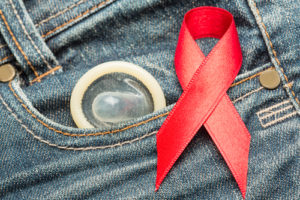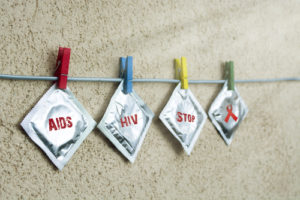Back to Main Page
According to key findings, in 2015 almost 500 cases of HIV were recorded in Ireland, which is an increase of 38% when compared with 2014 statistics. HIV stands for Human Immunodeficiency Virus and is a virus that spreads through certain body fluids and attacks the body’s  immune system. HIV destroys many of the immune system cells therefore the body can’t fight off infections and disease. Opportunistic infections take advantage of the weak immune system and results in that person contracting AIDS- acquired immunodeficiency syndrome. The USI have rolled out a campaign to target the stigma associated with HIV.
immune system. HIV destroys many of the immune system cells therefore the body can’t fight off infections and disease. Opportunistic infections take advantage of the weak immune system and results in that person contracting AIDS- acquired immunodeficiency syndrome. The USI have rolled out a campaign to target the stigma associated with HIV.
How is it passed on?
- HIV can spread through the exchange of blood and bodily fluids. It can spread via unprotected vaginal, anal or oral sex.
- Injecting illegal drugs via the sharing needles puts a person at a great risk of contracting HIV.
- HIV can spread through mother to baby in pregnancy, childbirth or breastfeeding.
- You may get AIDS (Acquired Immune-Deficiency Syndrome)if the virus attacks your immune system to the point where your body can no longer fight the specific infections.
Symptoms
Early Symptoms
The initial symptoms of HIV can occur between 2 – 6 weeks after contraction of the virus. The following symptoms can present but may be mild;
- Fever
- Pains in joints or muscles
- Sore throat
- Swollen glands
- Fatigue
- A blotchy rash
Late symptoms
After these initial symptoms HIV may not present any symptoms for up to 10 years, but the virus stays in your system and can damage your immune system. The following are a list of late symptoms that may be present;
- Consistent fatigue

- White spots presenting on tongue/mouth
- Sweats during the night
- Shortness of breath
- Weight loss that is unexplained
- Temperature over 37C lasting for a number of weeks
- Diarrhoea that is continuous
- Swollen glands that lasts longer than 3 months
- Blurred vision
- Dry cough
Treatment & Prevention
No cure currently exists for HIV however appropriate medical care, HIV can be controlled. The medicine used to treat HIV is called antiretroviral therapy or ART. If taken correctly, it can prolong the lives of many people infected with HIV by keeping them healthy, and lowering their chance of infecting others.
Ways to prevent contracting HIV is;
- Avoid intimate sexual contact,

- Always use a condom,
- Avoid sharing needles,
- Ensure to have a HIV test if planning a pregnancy (HSE, 2016)
For more information on genital warts, click on any of the following links;